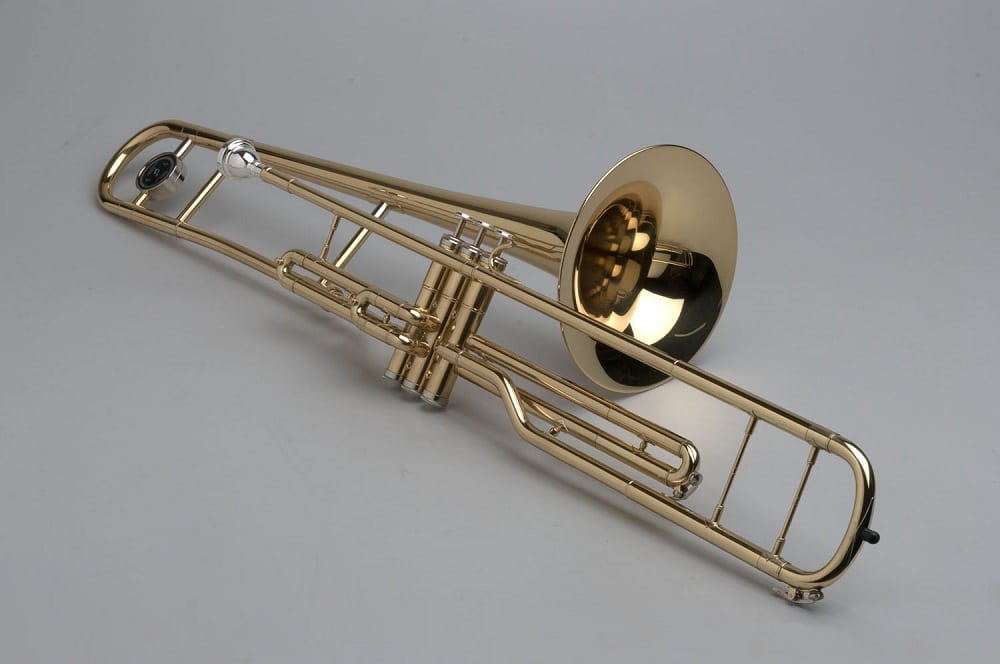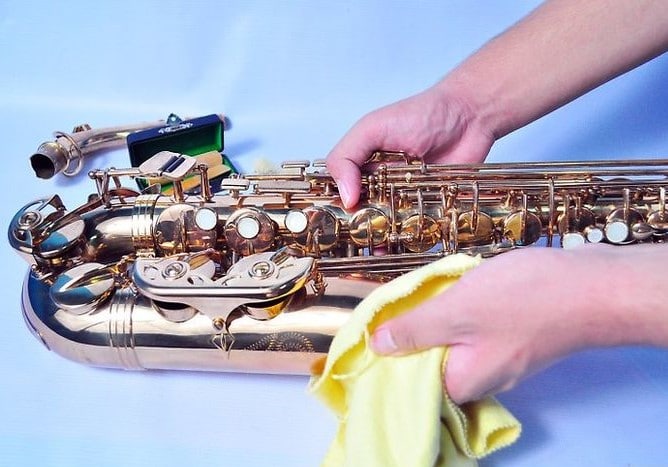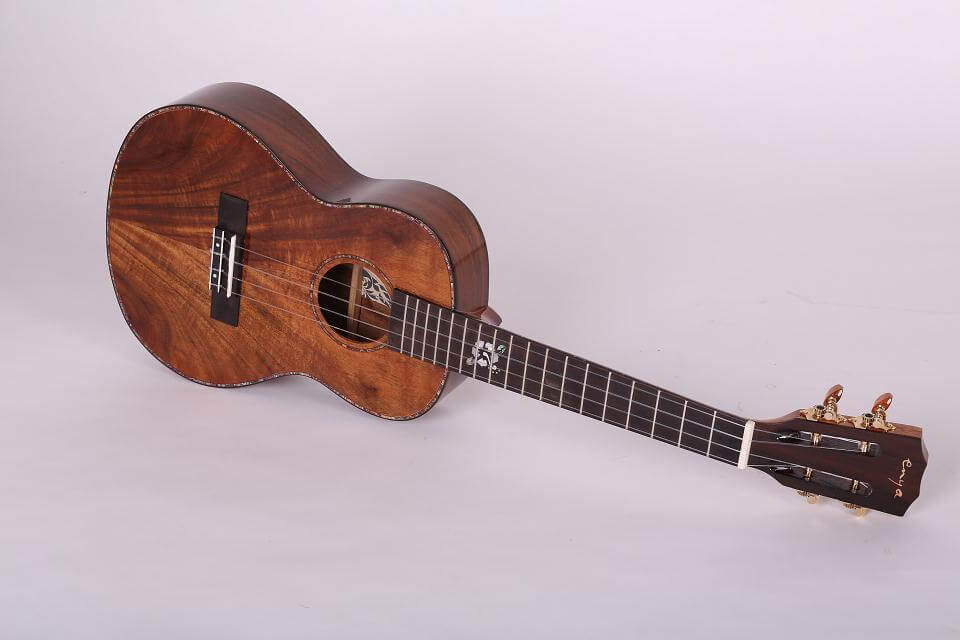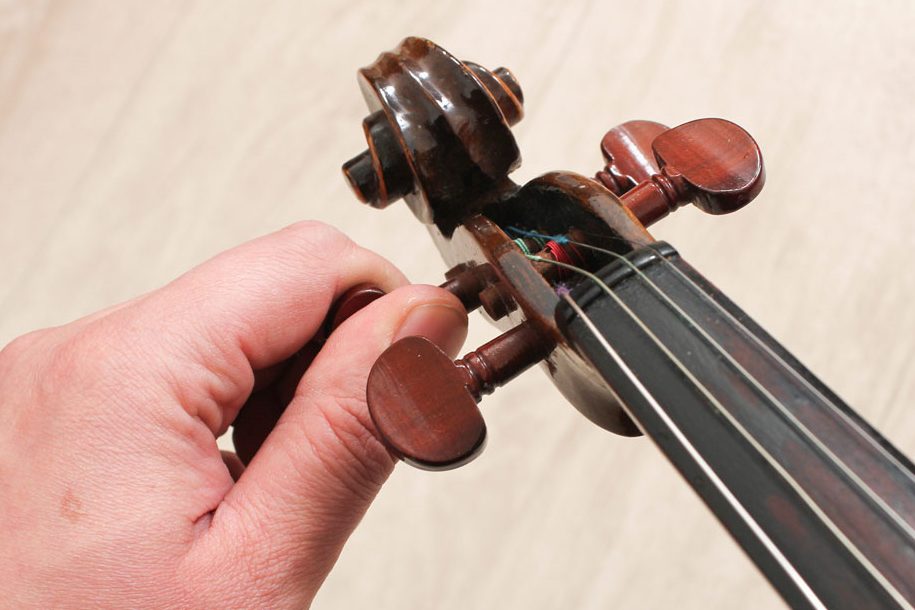A MIDI controller is an essential tool that every home studio owner needs. While you can produce a whole track using only your keyboard and mouse, the best MIDI keyboard controller for Logic Pro X has no alternative. In case you’re wondering, Logic Pro X is a powerful music production software from Apple, and since its release, it has gained a lot of prominence within the music production realm. However, if you’re looking to make the most of Apple’s Logic Pro X, you need to find a perfect MIDI keyboard controller that can go well with this incredible music software.
The audio market is littered with all types of MIDI keyboard controllers, which makes trying to choose the right model a daunting task. Well, you need not fear because we have designed this article to help clarify your doubts and also provide you with some pointers on the best MIDI keyboard controllers for Logic Pro X. In our selection, we took some crucial features and factors into consideration, such as pads and controllers, software included, keys features, dimensions and weight. With all these factors used as our yardsticks, we’re confident that we were able to choose the best products available.
Like we’ve already noted, we invested a lot of time and effort into the compilation of this guide. And from our very profound research, we were able to gather and include everything a prospective buyer needs to know before purchasing a MIDI keyboard controller. From the in-detail table to the comprehensive reviews of each product complete with their pros and cons to our handy buying guide, everything included in this list has been aimed towards guiding your every step.
More features: USB-powered model; backlit pads; built-in arpeggiator with adjustable resolution, range, and modes
This model from Akai is a pro-grade product that’ll offer you the whole range of control with its velocity-sensitive MPC-style pads, inbuilt arpeggiator octave buttons, eight assignable knobs, one sustain pedal input, one TS input and a four-way thumbstick which incorporates dynamic modulation and pitch control.
This keyboard controller from Akai packs a lot of features despite having a small footprint, which explains why it is so popular. So that the keyboard would be compact, Akai compromised on the number and size of the keys. If you are a beginner, the small spring-loaded keys might not bother you. However, if you are accustomed to pianos or keyboards with heavier and larger keys, or you have unusually large fingers, you might want to reconsider your decision to go for the Akai MPL Mini.
In another measure to save space, instead of the regular pitch and modulation wheels, the device comes with a four-way thumbstick. It might take some getting used to, but it’s worth it. The eight backlight MPC-style pads are probably the most appealing feature of this device, as they are also velocity-sensitive. Other notable features include octave-down and up buttons, an inbuilt arpeggiator, a sustain pedal input, and eight knobs.
The only version this keyboard comes in is the 25 keys, which might be a bit too limiting for some users. If you even find the 25 keys sufficient, keep in mind that the keys are not weighted and are much smaller than average. However, this keyboard controller is compatible with Logic Pro X and other DAWs available out there which makes it a versatile model that can be taken practically anywhere.
More features: USB-MIDI with 5-pin MIDI input & output; 1 assignable footswitch jack and 1 expression jack
Apart from the Logic Pro X, this keyboard controller from Akai is also compatible with several other DAWs available out there. While we are focusing on the 49 keys variant here, keep in mind that this one comes in three other options – 25 keys, 49 keys, and 61 keys. With the price starting at about $250, you need to keep in mind that this keyboard is not one for individuals seeking budget-friendly devices.
Considering the premium quality of this device, it’s very easy to see why it comes with a premium price tag. It feels sturdier and more polished than every other MIDI keyboard controller on the market; it is truly in a league of its own. Akai intended to make a premium grade keyboard controller, and the high quality is easily detectable. Everything from the feel of the knobs and keys to the enclosure shows why this product is of the high-end category.
It comes with full-size and semi-weighted keys, which do feel excellent. The controller features 16 MPC-style pads, which are incredibly customizable. This product also includes eight faders, eight switches, eight assignable knobs, one expression jack, one assignable footswitch jack, a pitch control wheel, and a modulation wheel, amongst more fancy bells and whistles. This device has a reasonably solid Logic Pro X integration, with presets engineered to be suitable for almost every DAW out there.
More features: USB-powered with sustain-pedal input
Viewed as the go-to organization for the best MIDI keyboard controllers, Alesis demonstrates again why they are rated so highly with this device. The flawlessly organized keys are placed on one side of the keyboard with the parameter controls on the other. With such a layout, you can use a mouse with your right hand while tinkering with the device’s controls with your left one.
Measuring 37.6 x 4.5 x 9.6 inches, which puts it in the mid-range, this device is ideal for a more unobtrusive studio setup. Provided that the 49 keys of the device are semi-weighted, every user should love the natural feeling response. The eight velocity and pressure-sensitive pads illuminate when being used, which comes in handy when the controller is utilized as a DJ keyboard.
With six buttons and four knobs, the Alesis V49 is not a device suitable for extensive producing and mixing. Although, it shines in beat production and clip management, and is totally compatible with Apple’s Logic Pro X. The general spec and feature assembly make the keyboard a good fit for both amateurs and more advanced customers. If you’re looking for a model with a decent sound, easy-to-use controllers, and beat pads, then you need to give this pick a serious consideration.
Other features: bus-powered, class compliant, software for Mac and PC, sustain pedal 1/4-inch jack socket, 7 segment 3-character LED display
Whether you are a professional or just starting out, this keyboard controller is a worthwhile addition to your music studio. It is a perfect option for Ableton Live users who do both music production and live performances.
Just like all the Launchkeys, the 49 MK2 comes with the Ableton Live 9 Lite for unlimited pairing options and performance. It features velocity-sensitive keys that are full-size and 16RGB pads. You also get 9 sliders and 8 knobs for controlling the instruments, mixer, and effects which are all mappable.
Using it is a no-brainer especially with the Ableton Live. You might find it a bit difficult to set up if you choose to use another DAW.
Being USB bus-powered with an average size, you can use it both in the studio and out for gigs as it is easily portable. Its keys are plastic but semi-weighted to give you the best sound feedback. Its knobs and faders also have a nice touch and they are tight enough. The pads are solidly built to endure everyday use and abuse.
The only downside to this unit is that it can’t be used as a standalone keyboard. You have to connect it to a computer or an iPad using the camera connection kit.
Overall, this is one of the best conveniently priced MIDI-enabled keyboards with plenty of features and a decent software bundle for users of any level.
More features: 2GB sound library included
M-Audio is a company with a knack for manufacturing music equipment with great features at reasonable price points, and the M-Audio Code 61 MIDI Keyboard Controller is a typical example. Despite coming at a fairly affordable price, this keyboard controller comes with features that put it firmly alongside more expensive models. Apart from featuring 61 full-sized, velocity-sensitive keys, this model also comes with 16 assignable velocity-sensitive trigger pads for clip launching, beat production, and more.
The controller comes with directional and transport buttons, pitch bend and modulation wheel. The velocity-sensitive keys provide you with a nice feel and are very responsive. It also features eight assignable 360 encoders for controlling your plugins, virtual instruments, and DAW, including the Logic Pro X.
An excellent performance needs the appropriate tools for the task. The M-Audio Code 61 features a unique keyboard with precise and clean action. For optimum expressive capability, the natural profile keys are pressure and velocity-sensitive, reassuring to reproduce every nuance and subtlety of your performance.
Other features: USB bus-powered, Mac, PC, and iOS Compatible, 8 DAW mixer channels, 4 pad maps
Nektar is a renowned brand famous for its distinguished technological approach that aims to offer users with tight integration with multiple DAWs and ease of use. The Nektar Impact LX49 packs a punch with extensive features and an advanced wide range of keys and pads. Plus, you wouldn’t hurt your wallet when you purchase it.
On its solidly built velocity-sensitive keyboard are knobs, buttons, faders, pads, and sliders built to last with a nice touch. You will enjoy the satisfying click that all its buttons give when pressed. The keys are medium-weighted and sensitive enough for great performances. The unit also features a USB port for connecting it to your computer or iPad.
The controller is super easy to use. All you have to do is download the installer for your most desired software and finish a few basic steps and you’re good to go. Basically, it is a plug and play.
Another plus for this unit is the 4 LED colors. You can use them in various ways including muting and unmuting drum sounds and triggering colored sounds among others.
The only snag with this unit is that it doesn’t support MIDI out. This means that you cannot control synths without going via your DAW.
More features: over 5,000 TAE powered preset sounds from Arturia’s award-winning V Collection, Ableton Live 9 Lite, UVI Grand Piano Model D
The Arturia Keylab Essential is available in sizes 49 and 61 keys. The KEYLAB49ESS comes with 49 keys with velocity. The first things that catch the eye are the shiny silver pitch bend and modulation wheels, which Arturia has placed to the left of the keyboard as usual.
The Pad, Chord Memory, and Chord Transpose keys located next to the 8 pads determine the pad modes. If the Pad push button is active, the individual pads output MIDI notes or CCs. If you switch to Chord Memory mode, each pad saves a chord, which can then be called up via this pad.
The Chord Transpose mode goes a little further. Here you can program your chord library on the 8 pads. Depending on which pad is active or selected, you can then play this chord transposed via the keyboard. Especially with regard to a live application, these three possibilities are to be rated very highly. Firing a chord quickly and programming up to 8 different ones in advance seems practical.
On the right are nine faders, potentiometers, and pressure switches. There are also three function keys Part1 / Next, Part 2 / Previous, and Live / Bank. With this, you can switch between the three banks, on which you can save different commands for the faders, potentiometers, and buttons.
All buttons/pressure switches of the Arturia Keylab 49 trigger cleanly, the faders and potentiometers also run neatly in their tracks.
The surface now looks much tidier. The workmanship of the Keylab is very good, all elements are properly manufactured and do a good job.
Thanks to the three working modes Analog Lab, DAW, and USER, the Keylab is armed for several areas of application and offers the option of making all settings either on the keyboard or via editor software.
In this section, we will be providing you with a handy buying guide which answers the most common questions buyers are usually faced with. By the end of this part, you will be brimming with a lot of confidence about the purchase you are about to make.
Manufactured by Apple, Logic Pro X is an outstanding software tool utilized by most music producers around the world. Even the beginners utilize this tool for making their first musical masterpieces. While the Logic Pro X already comes with a wide range of features, you can even extend this range by using an ideal MIDI keyboard controller that’s compatible with it. The best Logic Pro X MIDI controller has various variations, and with such device, you can get the full recording with different tracks inbuilt in the library.
Going shopping for a MIDI keyboard controller without knowing what to look for is probably the biggest mistake anyone could make. Before paying for a new MIDI controller for Logic Pro X, you need to take some important factors into consideration, which we will highlight below.
Probably the most vital factor when picking the right controller for you is choosing the appropriate size as regards the number of keys. At least, there are 25 keys in the smallest keyboards on the market such as the Akai Professional MPK MINI MK2 MKII. After that, there are 48 keys, 61 keys, and 88 keys, which is the maximum. Evidently, based on the research we carried out, 49 seems to be the size preferred by most music producers. That is sufficiently big to be able to handle melodies across four octaves, yet will not consume a lot of space on your table.
While you might also go for 61 keys to have an additional octave, that option boils down to personal preference and budget. People who choose 88-key keyboards likely have a background in playing the piano, and cannot stand anything below that. If you are in search of max portability though, you will need to go below a 49-key keyboard.
Some MIDI keyboard controllers come with full-sized weighted keys which can provide you with that incomparable feeling of a classical acoustic piano. However, if you’re not a professional musician and have never experienced playing the piano, go for semi-weighted keys with velocity sensitivity. They are much easier to operate and get used to.
Pads and controllers
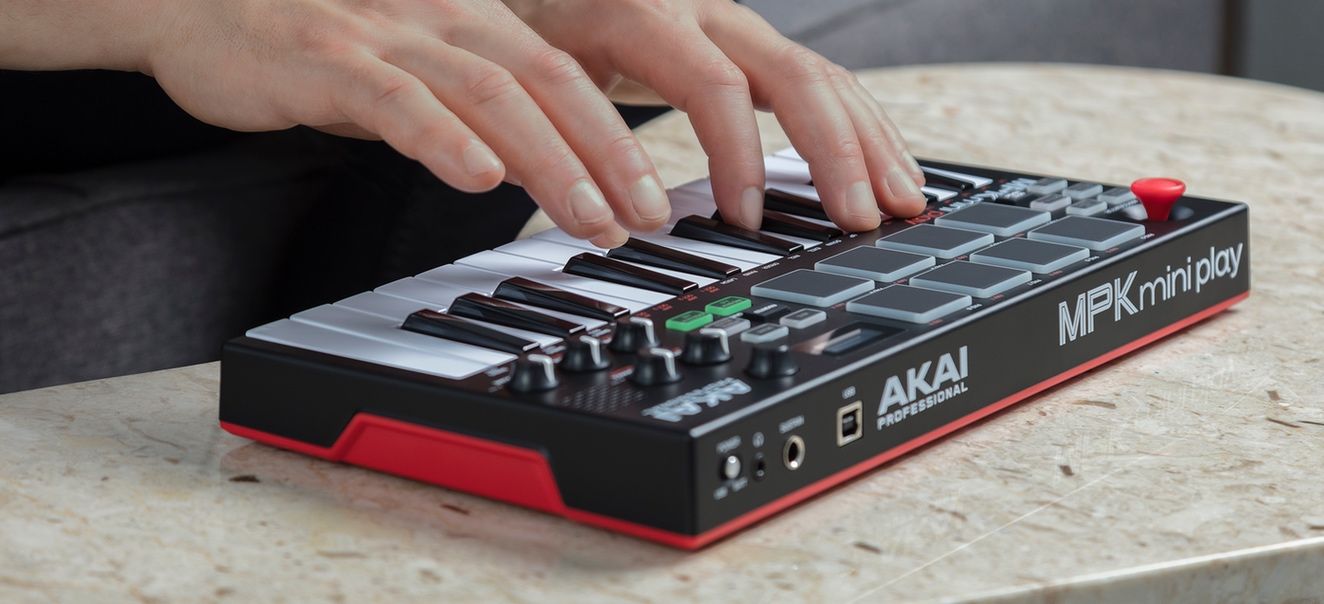
While every MIDI keyboard ought to have a software with a user-friendly and simple interface, it should be filled with useful features, so that the user can quickly produce the best possible professional music, without needing to give up quality or make due with a sound or beat because of the product’s limitations. The best keyboards will feature the most effective software, including not only the Logic Pro X we’ve focused on in this article, but other popular DAWs such as Ableton Live and Bitwig Studio.
Weight and dimensions
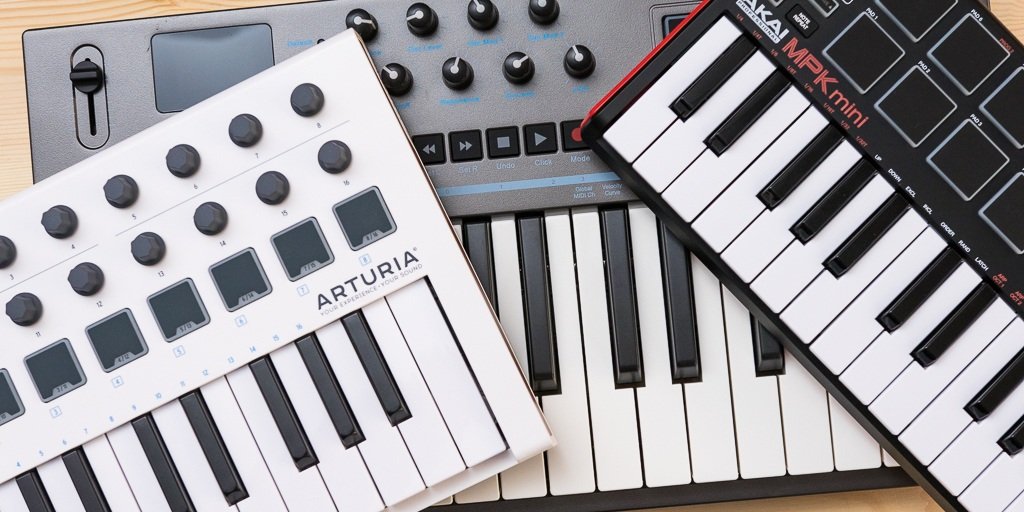
Some MIDI keyboards come with additional features like knobs, buttons, faders, and more, which will all be categorized into performance control. However, you need to keep in mind that the more the features a controller is equipped with, the more expensive it will be.
It is crucial to figure out what features will actually be useful and helpful for you in the long run.
For its incredible versatility and the myriad of features it comes with, the Akai Professional MPK MINI MK2 MKII is by a wide margin our top pick for the best MIDI keyboard controller for Logic Pro X. While its small footprint might be a turn off for some people, this model is actually a great option. It features eight velocity-sensitive backlight MPC-style pads, octave-down and up buttons, an inbuilt arpeggiator, a sustain pedal input, and eight knobs, amongst many features.
Our runner-up is the Akai Professional MPK249, which is also the best option for professional use. Featuring premium construction, this unit feels sturdier and more polished than any other MIDI keyboard controller on the market. It also comes with many bells and whistles which include various faders, switches, assignable knobs, and pads.
The Alesis V49 Keyboard Controller is also our second runner-up. With an attractive and thorough design, coupled with the natural feeling response provided by the 49 semi-weighted keys, the reasons why this model is in our top list aren’t far-fetched.
